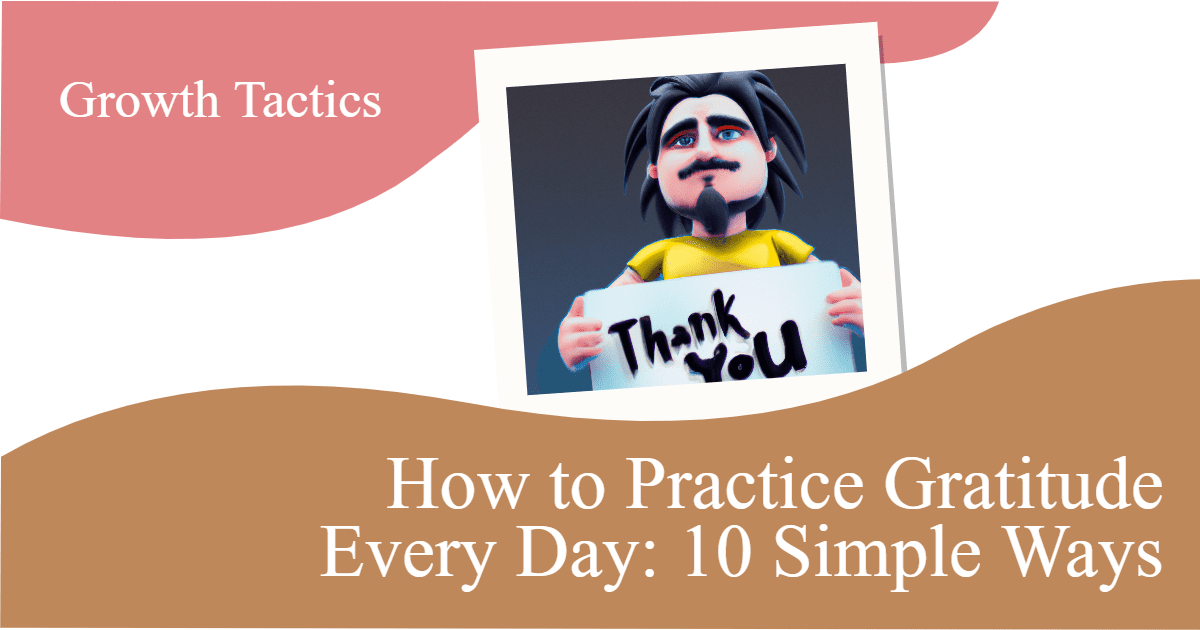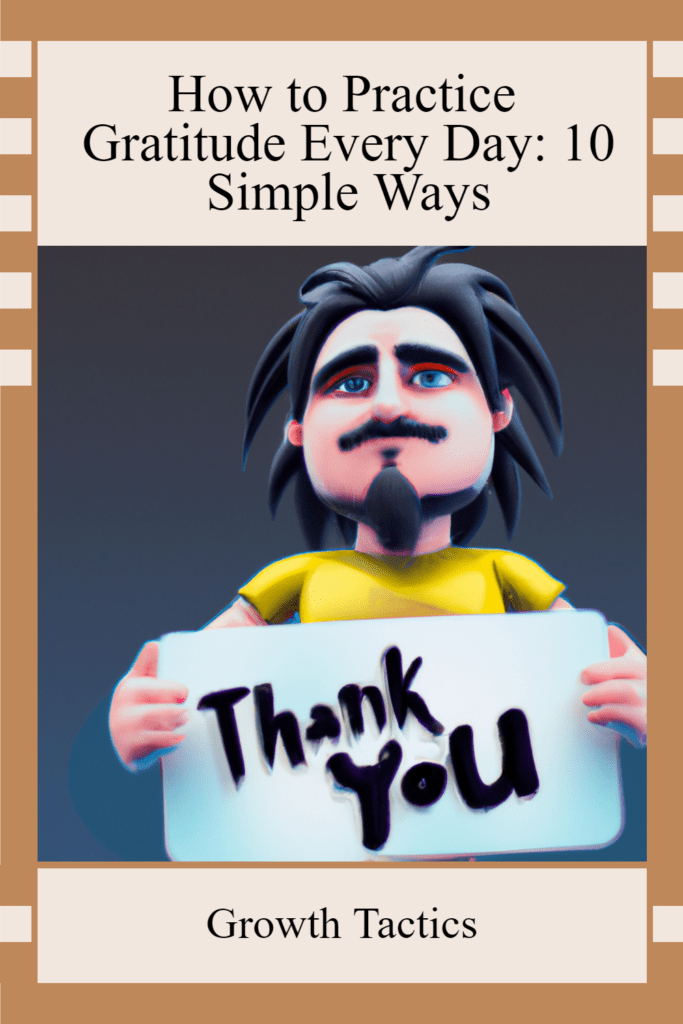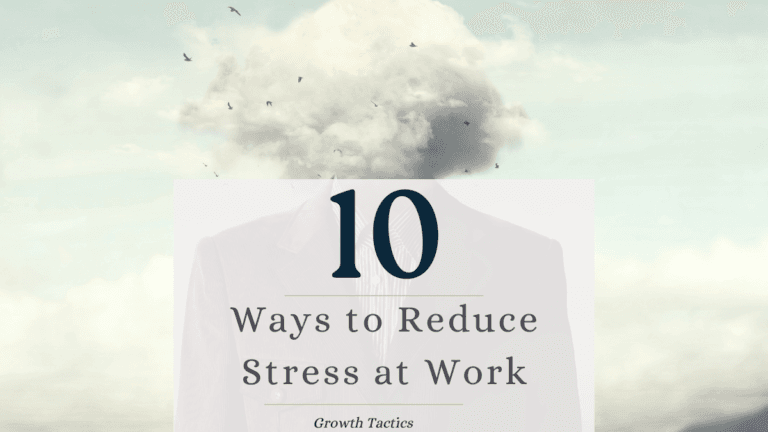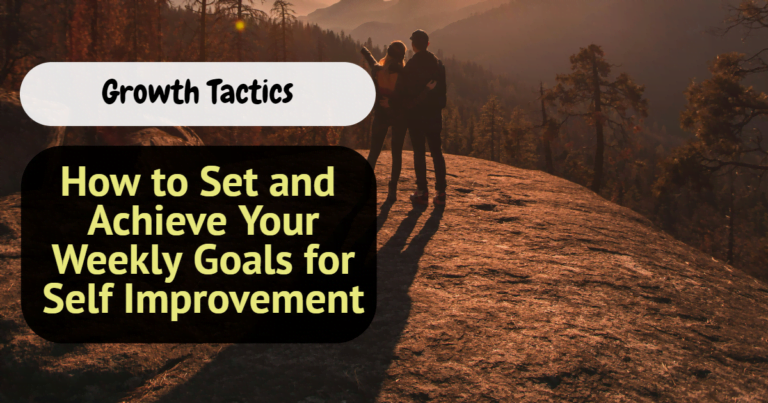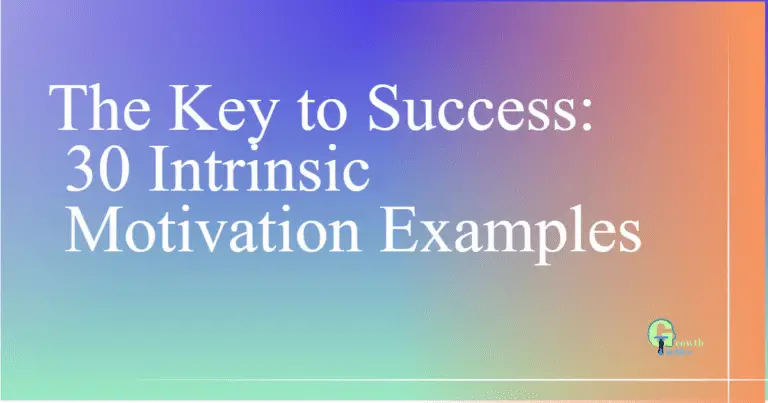Gratitude is more than just saying thank you. It’s a mindset and a way of life that can transform your outlook and improve your well-being. Practicing gratitude every day can help you feel happier, more content, and more fulfilled. Here are 10 simple ways to cultivate a grateful mindset and practice gratitude every day.
Jump To Section
Keep a Gratitude Journal
Keeping a gratitude journal is a powerful tool to cultivate a grateful mindset. It’s a simple practice that can have a big impact on your mental and emotional well-being. The idea behind a gratitude journal is to consciously focus on the things in your life that you’re thankful for, no matter how big or small they may be.
By taking just a few minutes each day to write down three things you’re grateful for, you can train your brain to focus on the positive aspects of your life. This can help shift your perspective away from negativity and towards gratitude.
Writing in a gratitude journal can also help you recognize the abundance in your life. When you take the time to reflect on the things you’re grateful for, you may begin to notice how much you have to be thankful for. This can help you feel more content and fulfilled, even in the midst of challenging times.
Another benefit of keeping a gratitude journal is that it can help you cope with stress and anxiety. When you’re feeling overwhelmed, taking a few minutes to write down things you’re grateful for can help feel more grounded and centered. It can also help you put things in perspective and remind you of the good things in your life.
Express Gratitude to Others
Expressing gratitude to others is a powerful way to show appreciation and strengthen relationships. It can be as simple as saying thank you or sending a note of appreciation, but it can also involve acts of kindness that go beyond words. When you take the time to express gratitude to someone else, you not only make them feel good, but you also benefit from the positive effects of gratitude.
One of the simplest ways to express gratitude is to say thank you. Whether it’s for a small favor or a big one, taking the time to say thank you can make someone feel appreciated and valued. It’s a small gesture that can go a long way in strengthening relationships and building trust.
Another way to express gratitude is to send a note of appreciation. Whether it’s a handwritten note or an email, taking the time to express your gratitude in writing can make someone feel truly appreciated. It’s a tangible reminder of the positive impact they’ve had on your life.
Acts of kindness are another way to express gratitude to others. Whether it’s bringing someone a cup of coffee, offering to help with a task, or doing something thoughtful and unexpected, acts of kindness can show someone that you value them and appreciate their presence in your life.
When you express gratitude to others, you not only benefit them, but you also benefit yourself. Studies have shown that expressing gratitude can increase feelings of happiness and well-being. It can also strengthen relationships and build social connections, which are important factors in overall life satisfaction.
Practice Mindfulness
Mindfulness is a powerful practice that can help you cultivate a sense of gratitude in your life. At its core, mindfulness is the practice of being present in the moment. It involves bringing your attention to the present moment and observing your thoughts and feelings without getting too caught up in them.
One of the benefits of mindfulness is that it can help you appreciate the simple things in life. When you’re fully present in the moment, you’re more likely to notice the beauty and wonder of the world around you. You might notice the way the sunlight filters through the trees, the way the breeze feels on your skin, or the taste of your morning coffee. By appreciating these small moments, you can cultivate a sense of gratitude for the simple pleasures in life.
Mindfulness can also help you become more aware of the good things in your life. When you’re fully present in the moment, you’re more likely to notice the positive aspects of your life, such as your relationships, your health, and your accomplishments. By focusing on these positive aspects, you can cultivate a sense of gratitude for the good things in your life.
Another way that mindfulness can help cultivate gratitude is by reducing stress and anxiety. When you’re fully present in the moment, you’re less likely to get caught up in worries about the future or regrets about the past. This can help you feel more relaxed and centered, which can help you cultivate a sense of gratitude for the present moment.
Find Something Positive in Challenging Situations
When we encounter difficult situations in life, it’s easy to get caught up in negative thoughts and feelings. But by reframing the situation and finding something positive, we can cultivate a sense of gratitude for the lessons learned.
One way to find something positive in a difficult situation is to focus on the lessons learned. Every difficult situation has something to teach us, whether it’s about ourselves, others, or the world around us. By focusing on the lessons learned, we can reframe the situation in a more positive light and find gratitude for the new knowledge and growth that has come from it.
Another way to find something positive in a difficult situation is to focus on the support and love of those around us. When we’re going through a hard time, it’s important to remember that we’re not alone. There are people in our lives who care about us and want to help us through difficult times. Focusing on the support and love of those around us can help us reframe the situation and find gratitude for the people in our lives who care about us.
Finally, it’s important to remember that difficult situations can also bring about positive change. Sometimes, it takes a difficult situation to push us out of our comfort zones and inspire us to make positive changes in our lives. By focusing on the potential for positive change, we can reframe the situation and find gratitude for the opportunity to grow and improve.
Volunteer or Donate to a Cause
Volunteering or donating to a cause is a great way to give back to the community and make a positive impact on the world around us. It can also help us feel a sense of purpose and gratitude for the ability to make a difference.
When it comes to choosing a cause to get involved with, it’s important to find something that aligns with your values and interests. This can make the experience more fulfilling and meaningful, as you’ll be working towards something you truly care about. Whether it’s supporting a local animal shelter, volunteering at a soup kitchen, or donating to a charity that supports a cause you’re passionate about, there are countless ways to get involved and make a difference.
One of the benefits of volunteering or donating is that it can help us feel a sense of purpose. When we’re engaged in meaningful work that aligns with our values, we feel a sense of fulfillment and satisfaction. It can also help us feel more connected to our community and the world around us, as we see the impact of our efforts firsthand.
In addition to feeling a sense of purpose, volunteering or donating can also help us cultivate gratitude. By giving back to others, we are reminded of the many blessings in our own lives. We may feel grateful for our health, our family and friends, or the many opportunities we’ve had in life. By focusing on the positive aspects of our lives, we can cultivate a sense of gratitude and appreciation for all that we have.
Finally, volunteering or donating can also help us develop important skills and qualities, such as empathy, compassion, and teamwork. These skills can be valuable in both our personal and professional lives and can help us become more well-rounded individuals.
Practice Self-Care
Self-care is a vital practice that involves taking care of our physical, mental, and emotional well-being. It involves taking time for ourselves to de-stress, relax, and recharge. Engaging in self-care activities can be beneficial in many ways and can help us feel more grounded and appreciative of the things in our life.
When it comes to physical self-care, it involves taking care of our bodies by engaging in activities that promote good health. This can include regular exercise, eating a healthy diet, getting enough sleep, and engaging in activities that promote relaxation, such as yoga or meditation. By taking care of our physical health, we can feel better physically, which can also have a positive impact on our mental and emotional well-being.
Mental self-care involves taking care of our minds by engaging in activities that promote mental wellness. This can include activities such as reading, writing, or engaging in creative projects. It can also include setting boundaries and saying no to things that cause stress or anxiety. By taking care of our mental health, we can feel more focused and clear-headed, which can lead to greater productivity and a better quality of life.
Emotional self-care involves taking care of our emotional well-being by engaging in activities that promote positive emotions, such as joy, happiness, and contentment. This can include spending time with loved ones, engaging in activities that bring us joy, or practicing self-compassion and kindness. By taking care of our emotional well-being, we can feel more connected to ourselves and those around us, which can lead to greater fulfillment in life.
Engaging in self-care activities can help us feel more grounded and appreciative of the things in our life. When we take time for ourselves, we are reminded of the many blessings in our life and can cultivate a greater sense of gratitude. Additionally, taking time for self-care can help us feel more balanced and centered, which can lead to greater resilience and the ability to handle life’s challenges more effectively.
Surround Yourself with Positive People
Surrounding yourself with positive people can have a significant impact on your mental and emotional well-being. When you spend time with people who have a positive outlook on life, it can help you cultivate a positive mindset and increase feelings of happiness and gratitude.
One of the benefits of surrounding yourself with positive people is that it can help you develop a more positive mindset. When you spend time with people who see the good in situations and focus on the positive aspects of life, it can help shift your perspective as well. You may find yourself becoming more optimistic and hopeful about the future. This can lead to greater feelings of happiness and contentment in your life.
Another benefit of surrounding yourself with positive people is that it can help increase feelings of gratitude. When you spend time with people who are grateful for the good things in their life, it can inspire you to focus on the positive aspects of your own life as well. You may find yourself feeling more appreciative of the people and experiences in your life, which can lead to greater feelings of joy and fulfillment.
In addition to cultivating a positive mindset and increasing feelings of happiness and gratitude, surrounding yourself with positive people can also provide a support system. When you’re going through a difficult time, having people who uplift and inspire you to lean on can make all the difference. They can provide encouragement, support, and guidance as you navigate life’s challenges.
When seeking out positive people to surround yourself with, it’s important to look for people who share your values and interests. This can make the experience more fulfilling and meaningful, as you’ll be connecting with people who have similar passions and goals. Whether it’s joining a group or organization that aligns with your interests or attending events and activities that bring together like-minded individuals, there are countless ways to connect with positive people and cultivate a positive mindset.
Take Time to Appreciate Nature
Nature has a way of inspiring awe and gratitude in people. The beauty of the natural world can evoke feelings of wonder and appreciation, and taking time to appreciate it can have a profound impact on our well-being. Whether it’s a walk in the park or a hike in the mountains, spending time in nature can help us feel more connected to the world around us and can provide a sense of peace and calm.
One of the benefits of spending time in nature is that it can help lower stress levels. The natural world has a way of slowing us down and helping us feel more relaxed. The sound of birds chirping, the rustle of leaves in the wind, and the sight of a beautiful sunset can all help us feel more grounded and centered. This can have a positive impact on our mental and emotional well-being, reducing feelings of anxiety and stress.
Another benefit of spending time in nature is that it can help increase feelings of gratitude. When we take time to appreciate the beauty of the natural world, we are reminded of the many blessings in our life. We may find ourselves feeling more grateful for the people and experiences in our life, as well as for the beauty and wonder of the world around us.
In addition to lowering stress levels and increasing feelings of gratitude, spending time in nature can also provide opportunities for exercise and physical activity. Whether it’s a leisurely walk in the park or a challenging hike in the mountains, being in nature can help us get moving and can provide a sense of accomplishment and satisfaction. This can have a positive impact on our physical health and can also help boost our mood and energy levels.
When taking time to appreciate the natural world, it’s important to be mindful and present in the moment. Rather than rushing through a hike or walk, take time to stop and appreciate the beauty around you. Notice the colors of the leaves, the sound of the water, and the feel of the wind on your skin. By being fully present in the moment, you can fully appreciate the experience and reap the benefits of being in nature.
Practice Gratitude Meditation
Gratitude meditation is a powerful practice that can have a profound impact on our mental and emotional well-being. It involves focusing on gratitude during meditation and taking a few minutes each day to cultivate a sense of gratitude for all that we have. By regularly practicing gratitude meditation, we can shift our focus from what we lack to what we have, and cultivate a greater sense of appreciation and contentment in our lives.
One of the benefits of gratitude meditation is that it can help reduce feelings of stress and anxiety. When we focus on the things we’re grateful for, we shift our attention away from our problems and worries. This can help reduce the negative thoughts and feelings that contribute to stress and anxiety, and help us feel more relaxed and at ease.
Another benefit of gratitude meditation is that it can help increase feelings of happiness and well-being. By focusing on the things we’re grateful for, we cultivate a sense of appreciation and contentment in our lives. This can help us feel more fulfilled and satisfied.
In addition to reducing stress and anxiety and increasing feelings of happiness and well-being, gratitude meditation can also help us develop a greater sense of empathy and compassion. When we focus on gratitude, we become more aware of the people and experiences in our lives that bring us joy and happiness. This can help us feel more connected to others and can increase our sense of empathy and compassion for those around us.
When practicing gratitude meditation, it’s important to be present in the moment and focus on the things you’re truly grateful for. This could be anything from the people in your life to the experiences you’ve had, or even the simple things like a warm cup of coffee in the morning or a beautiful sunset. By focusing on the things you’re truly grateful for, you can cultivate a greater sense of appreciation and contentment in your life.
Practice Gratitude Before Bed
Taking a few moments before bed to reflect on the things you’re grateful for from the day can be a powerful way to promote feelings of relaxation and contentment. This practice can help shift your focus away from any stress or worries from the day and towards the positive aspects of your life, promoting more peaceful and restful sleep.
When reflecting on the things you’re grateful for from the day, it’s important to focus on the small things as well as the big ones. This could be anything from a kind word from a coworker to a beautiful sunset or even just a moment of quiet reflection. By focusing on the positive aspects of your day, you can cultivate a greater sense of appreciation for the good things in your life.
In addition to promoting relaxation and contentment, reflecting on the things you’re grateful for before bed can also help increase feelings of happiness and well-being. By ending your day on a positive note, you can carry those positive feelings with you into the next day, promoting a more positive and optimistic outlook on life.
To make this practice a habit, try setting aside a few minutes each night before bed to on things you’re grateful for from the day. This could be as simple as writing them down in a journal, or just taking a few moments to reflect silently. Over time, this practice can become a powerful tool for promoting feelings of gratitude and well-being and can help you cultivate a positive and fulfilling life.
Things to Be Grateful For
Gratitude isn’t just about grand gestures or monumental achievements; it’s the everyday blessings that often go unnoticed. Recognizing the simple pleasures and profound joys in our daily lives can transform our outlook and foster a sense of contentment. Let’s explore some things we can all be grateful for and how acknowledging them can enhance our well-being.
Health and Well-Being
Our health is perhaps one of the most significant things to be grateful for. Being able to move our bodies, breathe deeply, and feel vitality is something we often take for granted. Whether it’s good physical health or mental clarity, taking a moment to appreciate it can have a positive impact on our overall happiness. Even if we’re facing health challenges, there’s often something to be thankful for, such as access to healthcare or the support of loved ones.
Relationships and Connections
The people in our lives play a crucial role in our happiness and well-being. Friends, family, colleagues, and even casual acquaintances can bring joy, support, and a sense of community. By expressing gratitude for our relationships, we not only deepen our connections but also affirm the positive impact others have on our lives. Simple gestures like a heartfelt thank you or a note of appreciation can strengthen these bonds.
Nature and the Outdoors
Nature offers us countless reasons to be grateful. The beauty of a sunrise, the tranquility of a quiet forest, or the vastness of the ocean can all inspire a sense of wonder and appreciation. Spending time in nature has been shown to reduce stress and improve mental health, reminding us of the simple yet profound joys that the natural world provides. Taking a moment to enjoy these small pleasures can foster a profound sense of gratitude for the world around us.
Personal Growth and Learning
Life is a journey of continuous growth and learning. Each challenge we face and every new experience we encounter contribute to our personal development. By reflecting on our growth, we can feel gratitude for the lessons learned and the progress made. Whether it’s acquiring a new skill, overcoming a personal struggle, or simply learning more about ourselves, acknowledging these achievements can boost our self-esteem and happiness.
Small Daily Joys
Life is filled with small moments of joy that often go unnoticed. A warm cup of coffee in the morning, a good book, the laughter of children, or a beautiful piece of music—these everyday pleasures can bring us immense happiness if we take the time to appreciate them. By cultivating awareness and being present in these moments, we can enhance our sense of gratitude and find contentment in the richness of our daily lives.
Acts of Kindness
Whether receiving or giving, acts of kindness have a powerful effect on our sense of gratitude. A smile from a stranger, a helping hand from a colleague, or the kindness we extend to others can all remind us of the goodness in the world. By reflecting on these acts, we can foster a sense of connectedness and appreciation for the kindness that surrounds us.
Conclusion
Practicing gratitude every day can help you live a happier, more content, and more fulfilling life. By following the tips in this article, you can cultivate a grateful mindset and lead a more fulfilling life. Start practicing gratitude today and see how it can transform your life.
Did you enjoy this article on how to practice gratitude? Please share and subscribe below.

